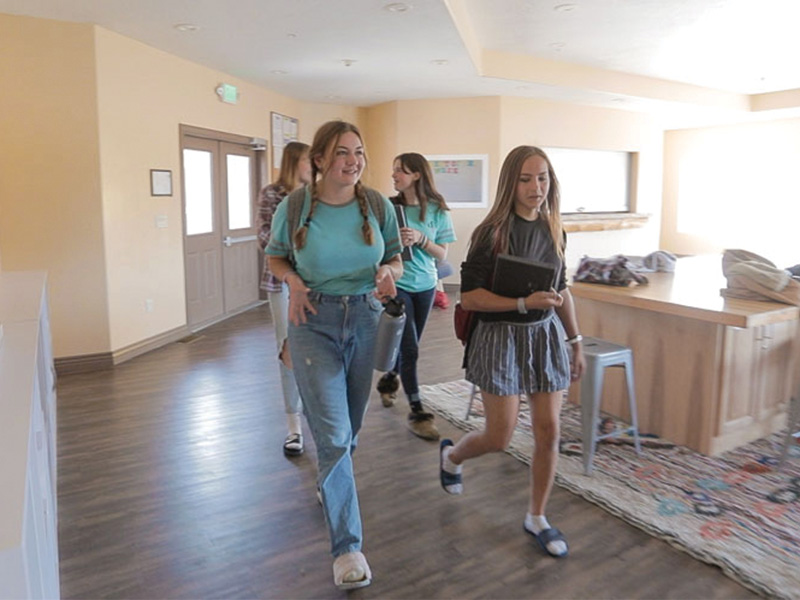School residential programs have become an integral part of the educational experience for many students. By providing a living environment on or near campus, these programs foster a sense of community, enhance learning opportunities, and support personal growth. Residential living allows students to immerse themselves in their academic pursuits while developing essential life skills and forming lasting relationships.
This article explores the significance of school residential programs, highlighting their benefits, key components, and effective strategies for successful implementation.
The Benefits of School Residential Programs

- Enhanced Academic Performance:
- Living on campus can lead to improved academic outcomes. Students in inca residence programs often have better access to academic resources, study groups, and faculty support, which can enhance their learning experience and boost grades.
- Development of Life Skills:
- Residential living encourages the development of essential life skills, such as time management, conflict resolution, and effective communication. Students learn to navigate daily responsibilities, fostering independence and self-reliance.
- Fostering Community and Belonging:
- Residential programs create a strong sense of community among students. Living together fosters friendships, collaboration, and support networks, helping students feel connected and engaged in their school environment.
- Opportunities for Personal Growth:
- Campus living provides numerous opportunities for personal development. Students can explore their interests, participate in extracurricular activities, and engage in leadership roles within their residential communities.
- Access to Resources and Support:
- Residential programs often provide easy access to academic resources, counseling services, and extracurricular activities. This support system is crucial for student success and well-being, ensuring that students have the tools they need to thrive.
Key Components of School Residential Programs
- Structured Living Environment:
- A well-organized residential program includes clear guidelines and expectations for students. This structure helps create a safe and supportive living environment conducive to learning and personal growth.
- Academic Support Services:
- Providing academic resources, such as tutoring, study sessions, and workshops, is essential for residential programs. These services help students stay on track academically and provide additional support when needed.
- Community Engagement Activities:
- Residential programs should include activities that promote community building and engagement knowledge. Social events, team-building exercises, and cultural activities help students connect with one another and foster a sense of belonging.
- Health and Wellness Programs:
- Supporting students’ physical and mental well-being is crucial in residential living. Programs that promote healthy lifestyles, stress management, and mental health awareness contribute to a positive living experience.
- Leadership and Development Opportunities:
- Encouraging students to take on leadership roles within their residential communities helps develop essential skills. Programs that promote peer mentoring, resident assistant training, and leadership workshops empower students to become active participants in their environment.
Effective Strategies for Implementation
- Needs Assessment:
- Conducting a needs assessment to understand the unique challenges and preferences of students is crucial. Surveys and focus groups can help gather valuable insights to tailor residential programs to meet student needs.
- Collaboration with Faculty and Staff:
- Collaborating with faculty and staff ensures that residential programs align with academic goals and institutional values. Engaging educators in program planning and implementation enhances the overall effectiveness of residential living.
- Incorporation of Technology:
- Utilizing technology can enhance the residential experience. Online platforms for communication, event planning, and resource sharing can facilitate engagement and streamline program management.
- Regular Evaluation and Feedback:
- Continuous evaluation of residential programs is essential for improvement. Gathering feedback from students, staff, and faculty helps identify strengths and areas for growth, ensuring that programs remain relevant and effective.
- Building Partnerships with Community Organizations:
- Collaborating with local organizations can enrich residential programs by providing additional resources, expertise, and opportunities for community engagement. Partnerships can enhance students’ learning experiences and broaden their horizons.
Challenges in Implementing School Residential Programs
- Budget Constraints:
- Limited funding can hinder the development and sustainability of residential programs. Schools must explore diverse funding sources, including grants and community partnerships, to support their initiatives.
- Diverse Student Needs:
- Students come from various backgrounds and have different needs. Residential programs must be adaptable and inclusive to accommodate the diverse experiences and challenges faced by students.
- Balancing Academics and Residential Life:
- Finding the right balance between academic responsibilities and residential activities can be challenging. Programs should emphasize the importance of academics while providing opportunities for social engagement and personal development.
- Conflict Resolution:
- Conflicts may arise among residents due to differing personalities and backgrounds. Implementing effective conflict resolution strategies and promoting open communication can help address issues and maintain a harmonious living environment.
- Retention of Students:
- Ensuring that students remain engaged and satisfied with their residential experience is crucial for retention. Regular check-ins, feedback sessions, and opportunities for involvement can help keep students connected and invested in their community.
Success Stories in School Residential Programs
- Living-Learning Communities:
- Many schools have implemented living-learning communities that integrate academic themes with residential living. These communities foster collaboration among students with similar interests, enhancing both academic and social experiences.
- Peer Mentorship Programs:
- Successful residential programs often include peer mentorship initiatives, where upperclassmen mentor incoming students. This support system helps new students acclimate to campus life and fosters a sense of belonging.
- Health and Wellness Initiatives:
- Residential programs that prioritize health and wellness have reported positive outcomes. Initiatives such as fitness challenges, mental health workshops, and nutrition education contribute to a healthier and more engaged student population.
- Cultural Exchange Programs:
- Schools that promote cultural exchange within residential settings enrich students’ experiences by exposing them to diverse perspectives. Cultural events, cooking classes, and language exchanges foster understanding and appreciation of different cultures.
- Community Service Projects:
- Engaging students in community service projects strengthens their connection to both their residential community and the larger community. These initiatives promote social responsibility and provide students with meaningful experiences outside the classroom.
Conclusion: The Impact of Campus Living on Education
School residential programs play a pivotal role in enhancing the educational experience through campus living. By fostering community, promoting personal growth, and providing essential support, these programs empower students to thrive academically and socially.
As educational institutions continue to prioritize student well-being, investing in robust residential programs is essential. By implementing effective strategies and addressing challenges, schools can create enriching living environments that support students’ holistic development.
In a world where the educational landscape is constantly evolving, school residential programs stand as a testament to the power of community and collaboration. By enhancing learning through campus living, we can cultivate a generation of engaged, well-rounded individuals ready to take on the challenges of the future.
Read Also About Historical Knowledge is essential for understanding the complexities of the present and navigating the future. By studying past events, cultures, and societies, we gain insights into the forces that have shaped the world we live in today.


